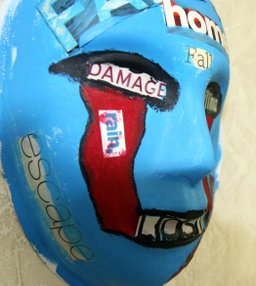“As an undergraduate student in psychology, I was taught that multiple personalities were a very rare and bizarre disorder. That is all that I was taught on ... It soon became apparent that what I had been taught was simply not true. Not only was I meeting people with multiplicity; these individuals entering my life were normal human beings with much to offer. They were simply people who had endured more than their share of pain in this life and were struggling to make sense of it.”
― Deborah Bray Haddock, The Dissociative Identity Disorder Sourcebook

Trauma- and Stressor Related Disorders

Image by Cpl. Andrew Johnston
Trauma- and stressor-related disorders are disorders that are explicitly caused by trauma or extreme stress. These disorders are closely related to anxiety disorders, obsessive-compulsive and related disorders, and dissociative disorders. These disorders include symptoms revolving around fear, anger and aggression, or dissociation as a result of the trauma experienced. Symptoms of these disorders may be primarily internalized or externalized (American Psychiatric Association, 2013).1
Trauma- and stressor-related disorders include:
- Reactive attachment disorder (RAD)
- Disinhibited social engagement disorder
- Posttraumatic stress disorder (PTSD)
- Complex-posttraumatic stress disorder (C-PTSD)
- Acute stress disorder
- Adjustment disorders
Disinhibited social engagement disorder, acute stress disorder, and adjustment disorders are not addressed within a unique page. However, disinhibited social engagement disorder is characterized by a child displaying culturally inappropriate and overly familiar behavior with relative strangers when this behavior is associated with the child having experienced insufficient care that prevented the formation of selective attachment at an early age. Acute stress disorder is very similar to posttraumatic stress disorder but has a pattern of symptoms that only last from three days to one month after the trauma. Adjustment disorders are also similar to PTSD but are diagnosed when either a trauma that would merit a diagnosis of PTSD has occurred but not all other criteria necessary for a diagnosis of PTSD are met or when the symptom pattern of PTSD occurs in response to an event that would not count as a trauma that could cause PTSD (American Psychiatric Association, 2013).1
1 American Psychiatric Association. (2013). Trauma- and Stressor-Related Disorders. In Diagnostic and statistical manual of mental disorders (5th ed.). http://dx.doi.org/10.1176/appi.books.9780890425596.dsm08